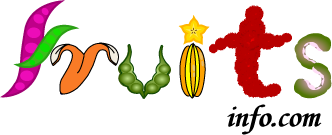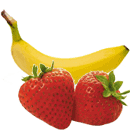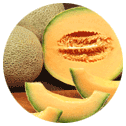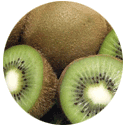Raspberry Health Benefits And Nutrition Values
The raspberry or hindberry is the edible fruit of plant species in the genus Rubus, most of which are in the subgenus Idaeobatus.The plant of this fruit is a small shrub growing very well in the temperate regions. The exotic berry is native to Europe but now widely cultivated in many temperate regions all over the world. Main producers of raspberries are Poland, United States, Germany, and Chile.They are rich source of many health promoting plant-derived nutrients, minerals, and vitamins that are essential for optimum health.

Nutrient |
Amounts/Selected Serving |
DV% |
|---|---|---|
Calcium |
30.7 mg |
3% |
Iron |
0.8 mg |
5% |
Magnesium |
27.1 mg |
7% |
Phosphorus |
35.7 mg |
4% |
Potassium |
186 mg
|
5% |
Sodium |
1.2 mg |
0% |
Zinc |
0.5 mg |
3% |
Copper |
0.1mg |
6% |
Manganese |
0.8mg |
41% |
Selenium |
02mcg |
0% |
Fluoride |
~ |
Nutrients |
Amounts/Selected Serving |
DV% |
|---|---|---|
TotalCalories |
64.0(268 kJ)
|
4% |
Carbs |
52.3(219 kJ) |
|
Fat |
6.7(28.1 kJ) |
|
Protein |
5.0(20.9 kJ) |
|
Alcohol |
0.0(0.0 kJ) |
Nutrients |
Amounts/Selected Serving |
DV% |
|---|---|---|
Protein |
1.5g |
3% |
Nutrients |
Amounts/Selected Serving |
DV% |
|---|---|---|
Fat |
0.8g |
1% |
Saturated Fat |
0.0g |
0% |
Monounsaturated fat |
0.1g |
|
Polysaturated Fat |
0.5g |
|
| trans fatty acids |
~ |
|
transmonoenoicfattyacids |
~ |
|
trans-polyenoicfattyacids |
~ |
|
Omega-3 fatty acids |
155mg
|
|
Omega-6 fatty acids |
306mg |
Nutrient |
Amounts/Selected Serving |
DV% |
|---|---|---|
Vitamin A |
40.6 IU |
1% |
Vitamin B6 |
60.0mg |
3% |
Vitamin B12 |
120.0 mcg |
0% |
Vitamin C |
32.2 mg |
54% |
`Vitamin D |
~ |
~ |
Vitamin D3 |
0.0mg |
|
Vitamin E |
1.1 mg |
5% |
Vitamin K |
9.6 mcg
|
12% |
Thiamin |
0.0 mg |
3% |
Riboflavin |
0.0 mg |
3% |
Niacin |
0.7mg |
4% |
Pantothenic |
0.4mg |
4% |
Choline |
15.1 mg |
|
Betaine |
1.0 mg |
|
Folate |
25.8 mcg |
6% |
Nutrients |
Amounts/Selected Serving |
DV% |
|---|---|---|
carbohydrates |
14.7g
|
5% |
Dietary Fiber |
8.0g |
32% |
Starch |
0.0g
|
|
Sugars |
5.4g |
Nutrients |
Amounts/Selected Serving |
DV% |
|---|---|---|
Cholesterol |
0.0g |
0% |
Phytosterols |
~ |
Nutrients |
Amounts/Selected Serving |
DV% |
|---|---|---|
Alcohol |
0.0g |
|
Water |
105g |
|
Ash |
0.6g |
|
Caffeine |
0.0mg |
|
Theobromine |
0.0mg |
- MACULAR DEGERATION
- BLOOD VESSEL & CONNECTIVE TISSUE
- RELIEF OF PMS SYMPTOMS
- CANCER
- REDUCE WRINKLES
- PROMOTES WOMENS HEALTH
- PROTECT HEART
Macular degeneration is an age related medical condition which affects vision. This leads to loss of vision in the midpoint of the visual field due to damage to the retina. Three servings of raspberries a day can prove to be a brilliant natural remedy for macular degeneration. You can add these berries to your morning cereal or lunch time yogurt.
Vitamin C is necessary for the growth and repair of cells in the human body. It helps the body to repair cells of the skin, bones, ligaments and blood vessels. Vitamin C is also helpful for immune-system functioning. Based on a 2000-calorie diet, 1 cup of raspberries contains 53 percent of your daily value of vitamin C. so by consuming this fruit might helps you in getting healthy blood vessel and connective tissue.
The relaxing effects of raspberry on smooth muscle, is used to alleviate cramping associated with premenstrual syndrome. It also reduces heavy menstrual flow. "Prescription for Herbal Healing" states raspberry leaf contains the compound ferulic acid, which acts to relax uterine muscles which relieve cramps, while tightening the muscles that support the uterus, allowing menstrual blood to flow more easily.
The cancer-fighting properties in raspberries and blueberries come from two of their chemical compounds, ellagic acid and vitamin C. Raspberries efficiently stop undesirable damage to cell membranes and thus neutralize free radicals. Ellagic acid is a phytonutrient component of raspberry with substances like kaempferol, quercetin, and the cyanidin-based molecules called cyanidin-3-rutinoside and cyanidin-3-glucosylrutinoside. These flavonoid molecules are again broken into anthocyanins, which contributes to the raspberries their rich red color. This promptly cuts down the overgrowth of certain bacteria and fungi in the body. These growths often lead to different vaginal infections and sometimes even irritable bowel syndrome.
Raspberries works like magic on wrinkles. It can be used as a natural face mask. It also protects the skin against the sun rays. The antioxidant from vitamin C of this fruit effectively reduces the age spots and discoloration. applying in minor wrinkles, raspberries help you to restore your youth. Raspberries can be made into great facial masks for glowing skin; you just need to mix 1 cup of plain yogurt and 2 cups of fresh raspberries, blend the mixture until it gets completely smooth. Apply the mixture to your entire face and keep it for 15 minutes. Then wash it off with tepid water.
These are good for single women, pregnant women as well as lactating mothers. Raspberry leaves can be used as herbal teas for women, which regulate menstrual cycles and decrease excessively heavy menstrual flow. In case of pregnant women, raspberry tea successfully relieves nausea, and prevents hemorrhage, reduce pain and help in childbirth. For lactating mothers, raspberry tea or eating this fruit will help to increase the production of breast milk. Minerals such as Vitamin C are thought to help the body to develop strong connective tissues and an immune system able to ward off the attack of micro-organisms.
Also abundant in salicylic acid, raspberry juice has the same effects in protecting against heart disease like aspirin. Aspirin also helps in preventing the hardening of arteries known as arteriosclerosis, while also reducing the risk of Parkinson's disease .
PERSON WHOM MAY NOT CONSUME RASPBERRIES
- GASTROINTESTINAL EFFECTS
- ALLERGIES
Dosages higher than those recommended on the package, it might actually cause effect to abdominal cramping and diarrhea.
The most severe side effects from taking raspberry leaf may occur if an individual is allergic to the herb. Chest pain, tightness in the chest, swelling, a rash or hives may indicate an allergic reaction to the herb. So take doctors advice when you intake of this fruit.















